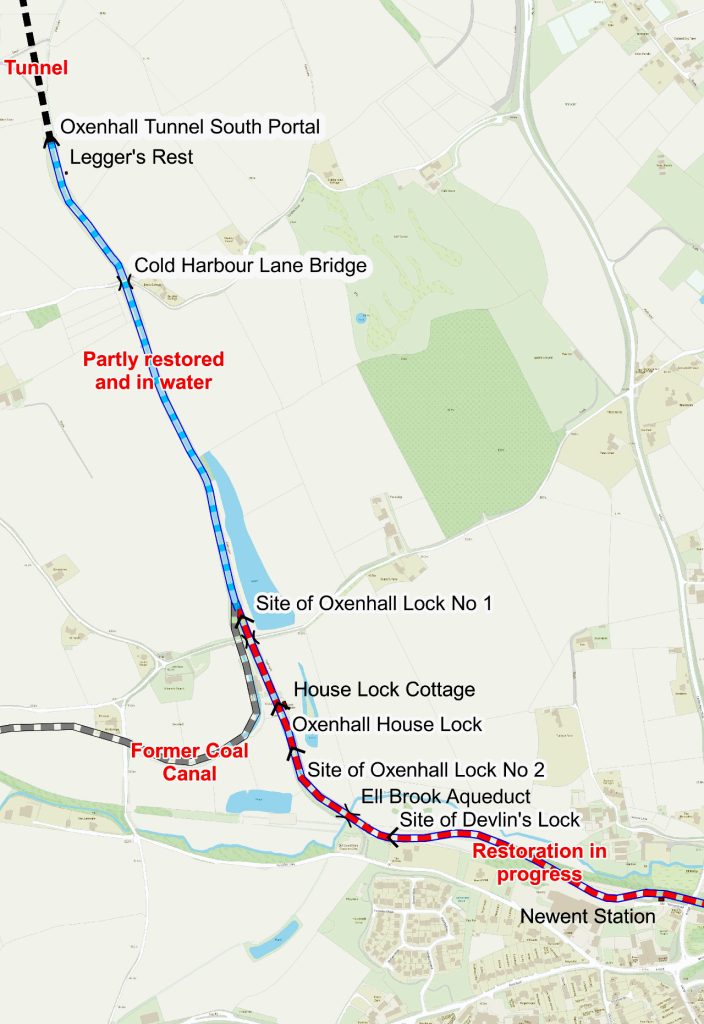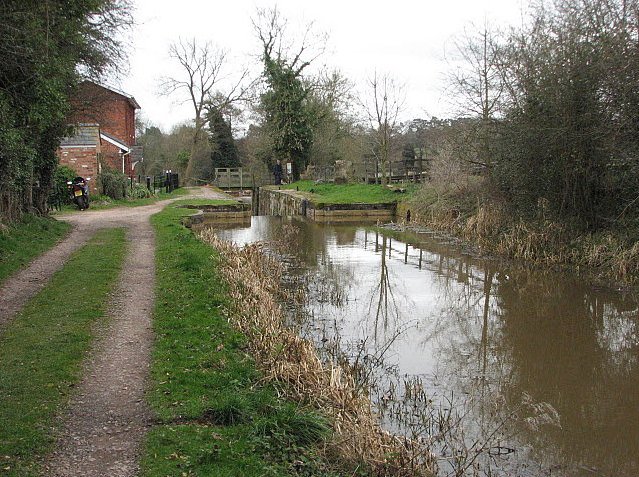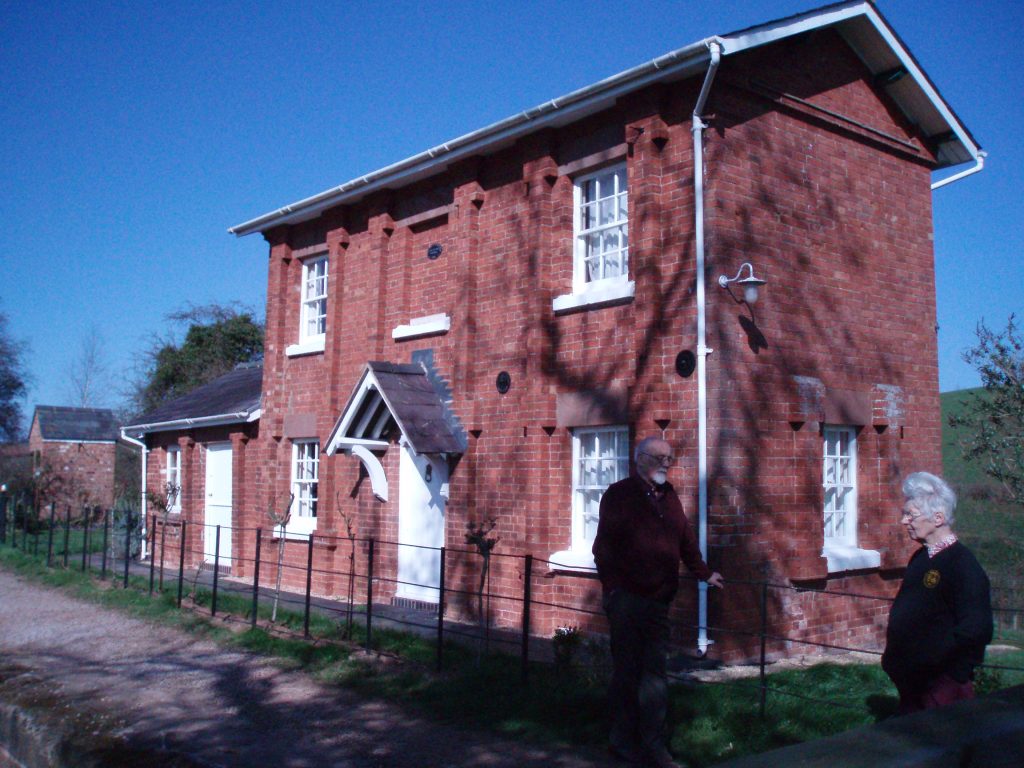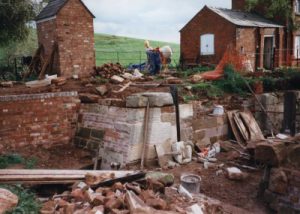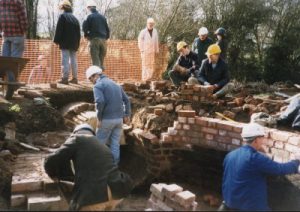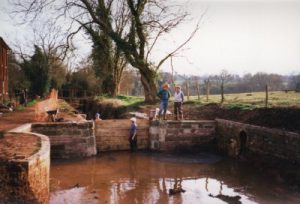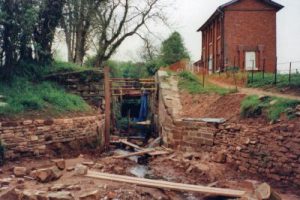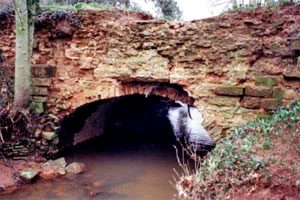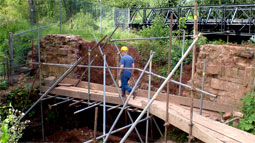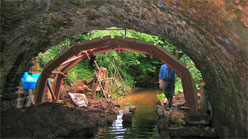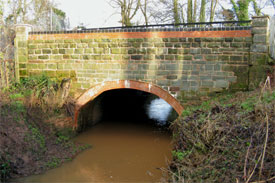Oxenhall lies between Ledbury and Newent, not far south of the M50 motorway.
This section of the Hereford and Gloucester Canal is of particular interest, featuring a tunnel, a length of branch canal, a series of locks, an original and unaltered lock keepers cottage and an aqueduct, all within a short distance of each other.
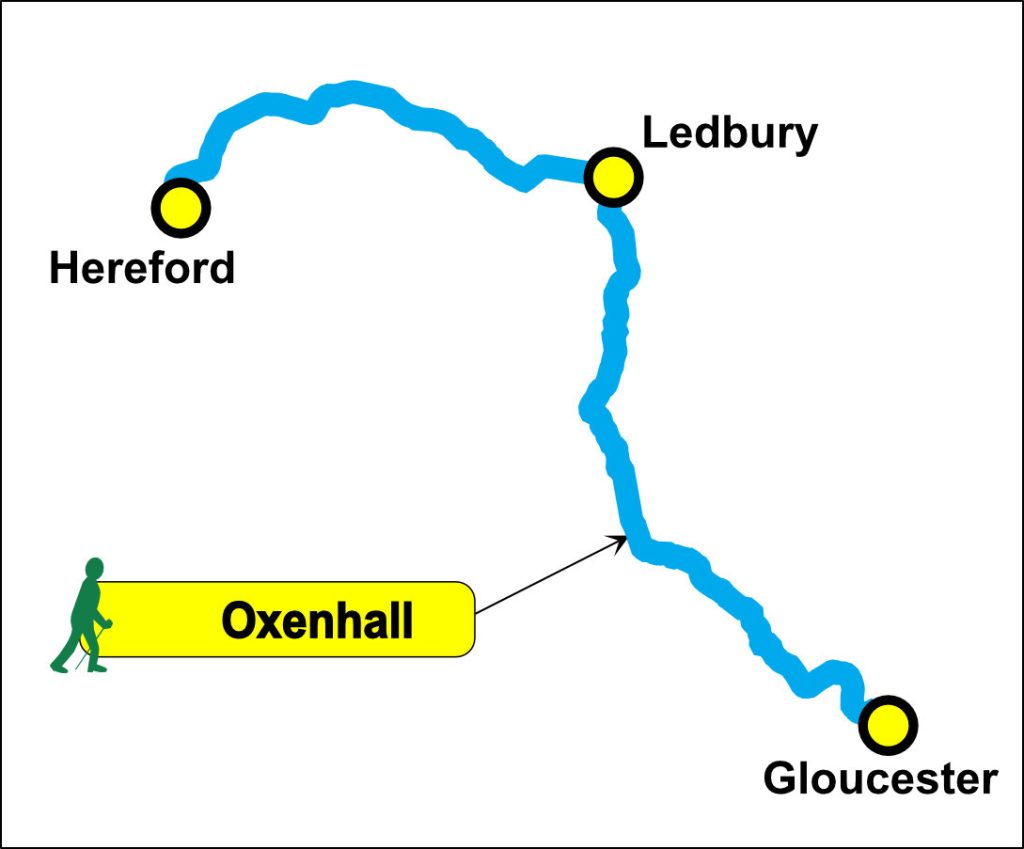
Oxenhall Tunnel and Legger’s Rest
Nearest postcode: GL18 1DJ
OS Grid Ref: SO 70916 27696
What3Words: ///dabbling.shatters.trumped
House Lock
Nearest postcode: GL18 1RL
OS Grid Ref: SO 71326 26684
What3Words: ///bashful.fumes.gilding
Ell Brook Aqueduct
Nearest postcode: GL18 1RG
OS Grid Ref: SO 71452 26487
What3Words: ///squeaking.otters.closet
Canal Walk No 5 – Oxenhall
The Trust has devised an increasing number of walks featuring parts of the canal, including one at Oxenhall.
Each is detailed in a separate leaflet, with a map and easy-to-follow instructions.
This one in part extends from Horsefair Lane to the canal close to Ell Brook Aqueduct, and then along the canal past House Lock as far as Cold Harbour Lane near the tunnel, before winding westwards and back past the former Coal Canal Branch.
A complete set of the walk leaflets can be obtained from our Website Shop.
If choosing to explore, there is room for a car or two if space and parked correctly on Horsefair Lane – please do not block the two gates in the fence line. Follow the path up the side of the yard and left to the aqueduct and locks or right along the permissive path to Newent station.
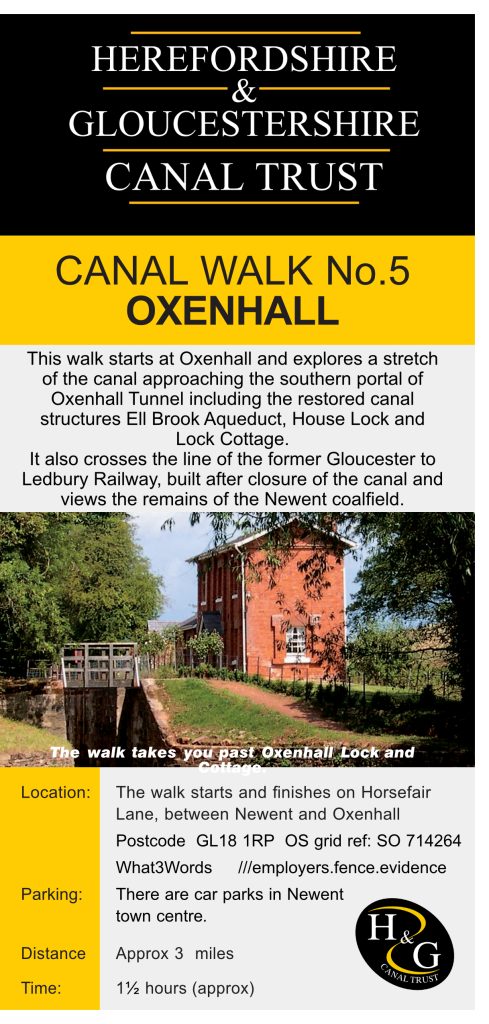
Oxenhall Tunnel and the “Legger’s Rest”
At the north end of the section is the south portal of the Oxenhall Tunnel. The tunnel, completed in 1798, extends northwards 2192 yards from here towards Ledbury, and passes under the M50 motorway, constructed between 1958 and 1960, and a high pressure gas transmission pipeline, constructed more recently in 2008.
Immediately south of the tunnel is the “Legger’s Rest”, a unique, arched recess built into the bank alongside the tunnel portal, where, history has it, the gang of men retained to assist passage of narrow boats through the tunnel, would await their next job.
in the early 1980’s, the structures of the Legger’s Rest and the tunnel portal where in very poor condition, but both have been fully restored by the Canal Society, and more recently by the Trust.
A short way from the tunnel is Cold Harbour Bridge. As part of some of the first restoration work undertaken by Trust volunteers on the canal, the walls of the Canal beneath the bridge were strengthened with concrete and then re-faced with masonry.
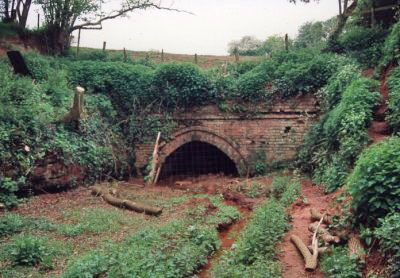
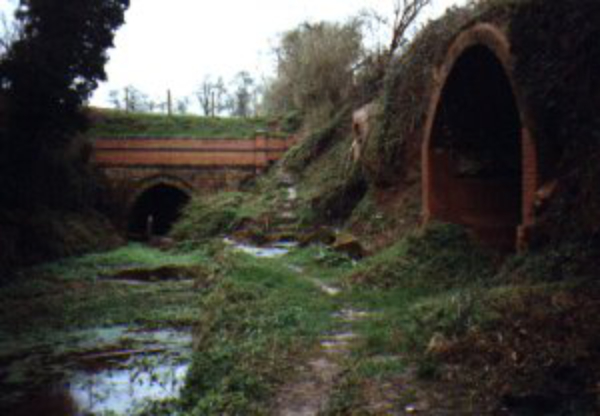

The Coal Branch, Oxenhall House Lock and Cottage
Beyond Cold Harbour Bridge, the Canal continues to the junction with the Coal Branch, built to serve the former collieries that once operated around the town of Newent. The Coal Branch was never a success, as the coal was of very poor quality, and it quickly fell into disuse. Here, the Top Lock has completely disappeared, but the pound above is kept in water by a dam across the Canal.
This section of the Canal, between Cold Harbour Lane and Top Lock, close to Winters Lane Bridge, was extensively dredged and the canal channel fully restored by the Trust in 1992. As a result of this work, a significant length of canal remains fully in water, providing an attractive walk much enjoyed by the local population.
The Canal continues to House Lock, complete with an original Hereford and Gloucester Canal lock keepers cottage. Before restoration of the Canal had been considered, the lock chamber, overspill weir and the cottage were virtually derelict. By dint of hard work on the part of the Trust and the property owner respectively, these grade II listed structures have now been fully restored to as close to their original condition as possible.
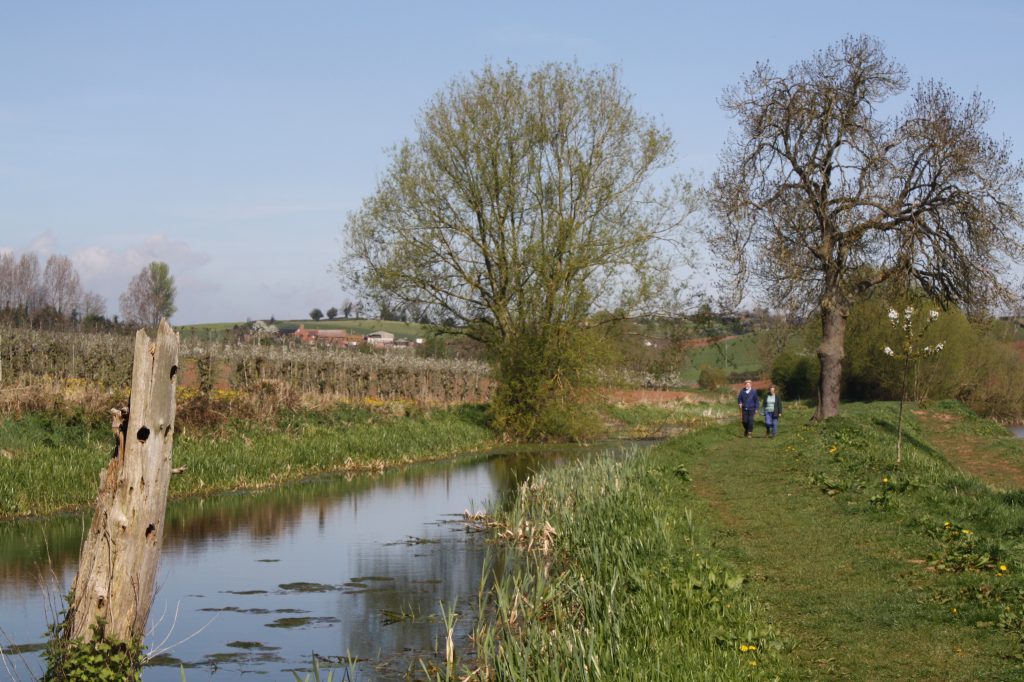
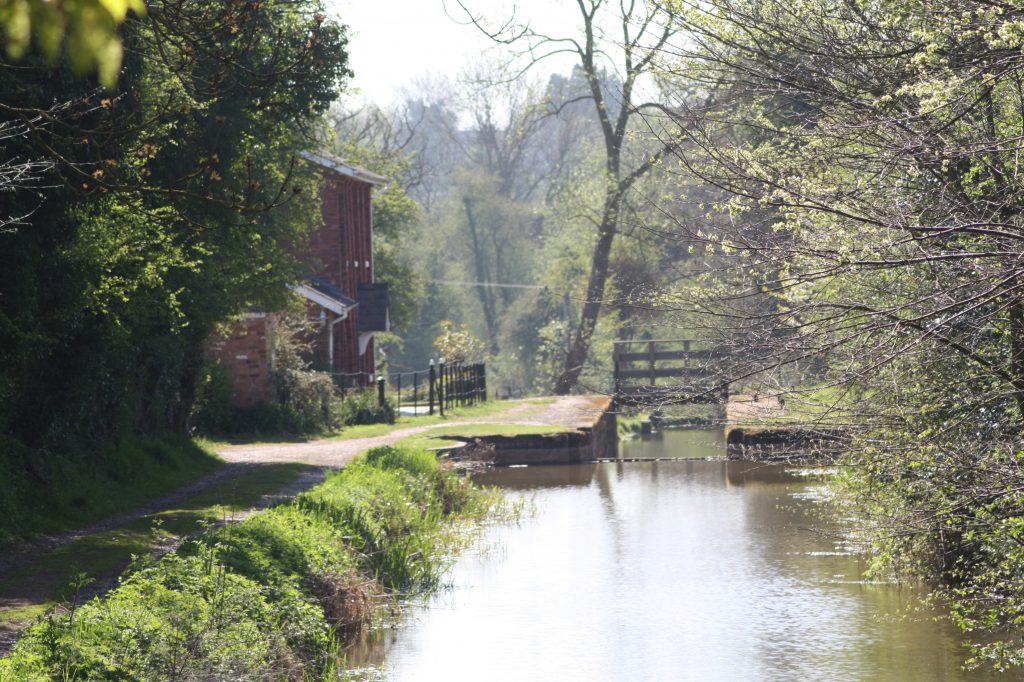
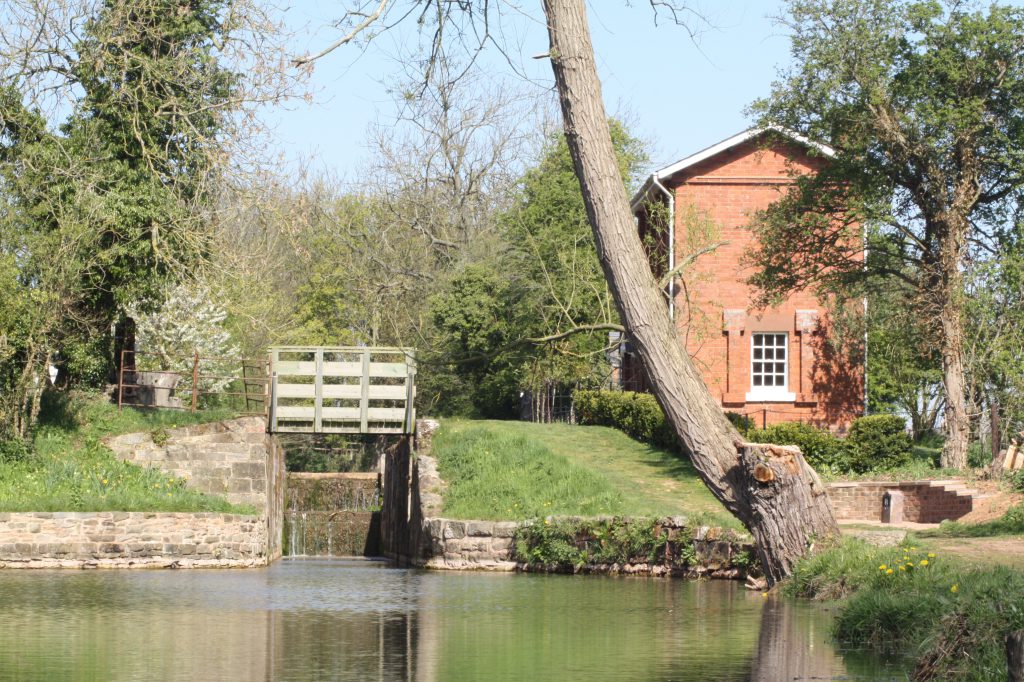
Lock No 2 and Ell Brook Aqueduct
Below House Lock the canal continues through No 2 lock (no longer in existence), where a temporary dam has been built to create a pound, and then shortly crosses the Ell Brook on a stone built, single arch aqueduct.
Here the weather and the scouring of the water since the canal closed caused serious deterioration to both spandrel walls which had collapsed into the brook.
Once again, a not-inconsiderable effort by the Trust volunteers has seen both walls rebuilt to their original height and minor repairs underneath the arch completed the restoration of the whole structure (2009).
We are now (2023) starting to focus on our next significant Oxenhall project – construction of a new Lock No 2 to connect the canal channel up to House Lock with a new channel across the previously restored aqueduct towards Newent Station.
A modern day lock starts at £250,000 if all conditions are ideal and funding for the work is urgently needed.
Please consider donating to this cause.
Oxenhall Updates Past and Present…
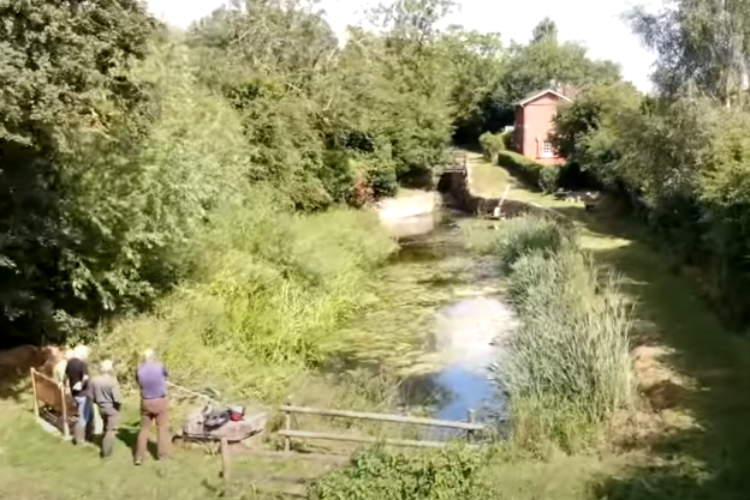



Canal Walk Leaflets Updated
Over the past twelve months the six existing Canal Walk leaflets have been updated, and can now be purchased online. A seventh Walk, planned around Ashperton, is in the course […]

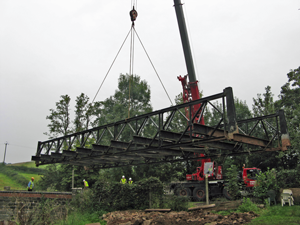
Oxenhall – Ell Brook Aqueduct – Removing the Bailey Bridge
The Bailey Bridge has been a useful and safe way to cross Ell Brook Aqueduct whilst the initial work on the aqueduct was completed. The removal was undertaken by the […]
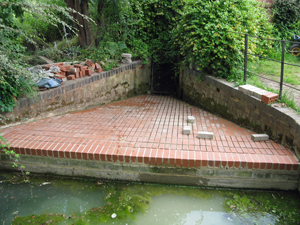
Oxenhall – Restoration of the Spill Weir by Lock House
The reconstruction of the spill weir by Oxenhall Lock House proved to be quite a challenge and plans were changed as obstacles arose. Before any work could start on the […]
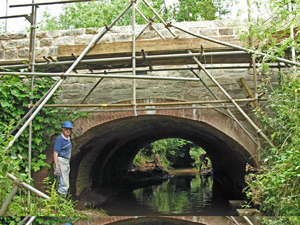
Oxenhall – Restoration of Ell Brook Aqueduct
Following completion of the restoration work on House Lock during the summer in 2003, the Trust’s Oxenhall team was able to turn their attention to restoration of the Ell Brook […]

Restoration of Oxenhall House Lock
In 2000, a small team of Trust Volunteers commenced work on restoring the Oxenhall lock chamber itself. Much of the original wall masonry had fallen into the chamber, and had […]

Early restoration work – Towards Oxenhall Tunnel
Oxenhall Canal Tunnel, completed in 1798, extends northwards 2192 yards from here towards Dymock. Most of the original structure of the tunnel is still in standing but will need extensive […]




